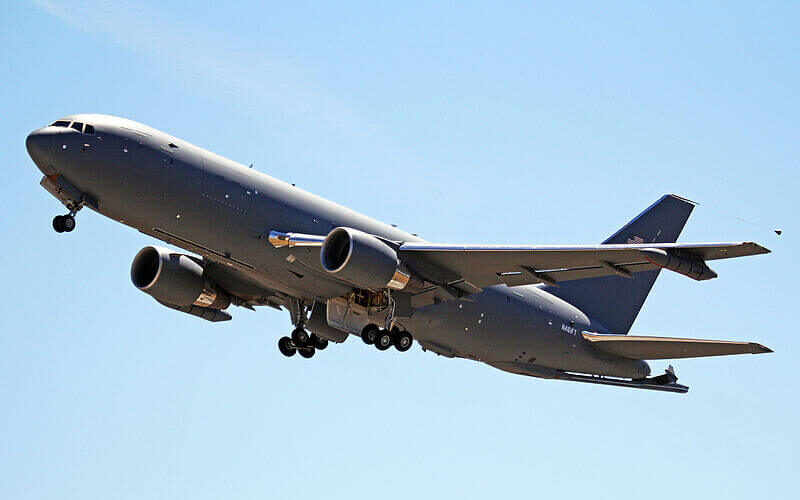The United States Air Force announced that it accepted to receive its first KC-46A Pegasus tanker from Boeing on January 10, 2019, more than a year after due date. But it might take a bit longer to see it in action.
The KC-46A is set to replace another Boeing aircraft, the KC-135 Stratotanker, in service within the USAF since 1957. The long awaited refueling platform has been delayed more than a few times.
The initial contract was signed in 2011, following the KC-X tender. It specified that the first aircraft would be delivered around May 2016, and the following 17 by 2017. But soon after, things became hectic. Technical deficiencies in the fuel distribution, delays in the certifications eventually costed the manufacturer more than $3 billion in cost overruns, sparking some criticism within both the Pentagon and the Congress. In an address to the latter in March 2018, Air Force Secretary Heather Wilson said: “One of our frustrations with Boeing is they’re much more focused on their commercial activity than on getting this right for the Air Force and getting these aircraft to the Air Force.“ Despite that, Boeing postponed the due date one last time, from October 2018 to this day, a delay that could cost the manufacturer $4.5 billion.
More aircraft should soon follow this first delivery according to Boeing: four KC-46s are ready to be sent to McConnell Air Force Base, and four more should arrive in Oklahoma’s Altus Air Force Base, starting next month. “This is an exciting and historic day for the Air Force and Boeing, as we hand over the first of many KC-46 tankers,” said Boeing Chairman, President and CEO Dennis Muilenburg.
“This is a major milestone for the next generation tanker and will allow Airmen to begin operational testing and flight training,” declared the USAF in its official statement. However, this long story may last a little bit longer, as the military already identified some problems on the first aircraft. Fortunately, “Boeing has agreed to fix at its expense, deficiencies discovered in developmental testing of the remote vision system,” the USAF clarified.
This “Remote Vision System” (RVS), developed by Rockwell Collins, is composed of several sensors and cameras that should help the boom operator during aerial refueling. However, it seems that the system does not work as intended, especially under certain light conditions according to Breaking Defense. Fixing the RVS could take Boeing a few more years.
Those years may give enough time to Airbus and Lockheed Martin to materialize their partnership, and to offer a leasing service to the USAF, using the more “battle-tested” A330 MRTT.

